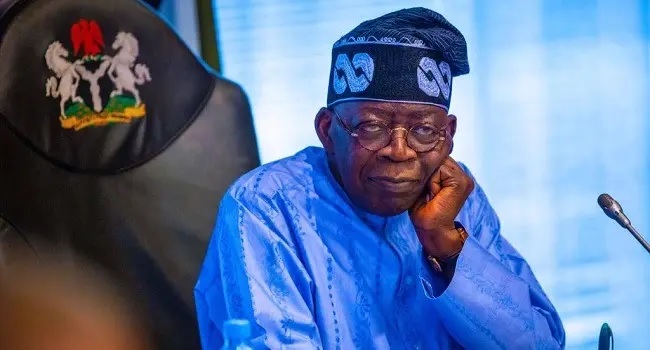By Ebi Kesiena
Nigeria’s Minister of Information and National Orientation, Mohammed Idris has emphasized economic reforms by the government to turn around the lives of every Nigerian.
At a world press conference on Wednesday in Abuja, the minister reeled out the achievements of the government in the past year, including the signing of the N70,000 Minimum wage, Local Government Autonomy, a Student Loan scheme, the Nigerian Youths Investment Fund, and direct agricultural interventions.
According to the Minister, President Bola Tinubu has laid a strong foundation for an economically viable, self-sufficient, and secure Nigeria.
He noted that instead of organizing national protests, Nigerians should focus on the numerous opportunities created by the Tinubu administration.
Addressing the planned protest organizers, he said, “A pushback to current policies in the guise of protests indicates the inability of the organizers to understand the realistic conditions necessary for growth and development.”
He added that the government’s efforts include retooling the economic system, providing large-scale infrastructure, and investing in health, agriculture, and human capacity development, including student loans.
One of the key developments highlighted was the energy transition from petroleum to Compressed Natural Gas (CNG) for vehicles and machinery. He explained that this transition opens up vast opportunities for Nigerians to engage in the CNG value chain, requiring infrastructure rollout across the country.
“The Presidential Compressed Natural Gas Initiative will reduce transportation costs for Nigerians by as much as 50 percent,” he said.
Minister Idris announced that the government has provided 30,000 kits for converting petrol-powered commercial vehicles to CNG-powered engines at no cost within the next 90 days. Additionally, the first batch of CNG Mass Transit Buses procured by the federal government has arrived for distribution to the 36 states and the Federal Capital Territory, FCT, he said.
To cushion the effects of the petroleum subsidy removal, he stated that the Tinubu administration introduced the Presidential Grants and Loans Scheme. Under this scheme, over 600,000 Nigerians have received N50,000 grants across the 774 Local Government Areas, with disbursements still ongoing.
He added that the N150 billion MSME and Manufacturing loans would commence disbursement after the final verification stage in August, aimed at stimulating industry, encouraging Nigerians to seize the opportunity.
The minister highlighted president Tinubu’s commitment to the welfare of Nigerian workers, evident in the approval of a New National Minimum Wage of N70,000. “The National Assembly has passed and transmitted the bill, and President Tinubu has assented to it,” he said. He noted that the minimum wage would now be reviewed every three years to align with economic realities and living standards.
To facilitate the payment of the new minimum wage, the National Assembly has approved a N6.2 trillion supplementary budget, with about N3 trillion allocated for covering the minimum wage and augmenting salaries.
Minister Idris also mentioned the landmark move by president Tinubu to implement Local Government Autonomy by seeking a decisive verdict from the Supreme Court.
He explained that this would strengthen governance and development at the grassroots level, ensuring effectiveness and accountability in local government administration. “With this game-changing institutional empowerment, local governments will witness unprecedented socio-economic transformation,” he added.




































